This post is also available in: Español (Spanish) Português (Portuguese)
The W.K. Kellogg Foundation (WKKF) Global Fellows Network (GFN) is a collective that spans more than 40 countries and more than 1,200 people across the U.S., Latin America and the Caribbean and southern Africa – all graduates of WKKF fellowship programs, past or present. Within their ranks are grassroots leaders, public servants, educators, judges and doctors. Each possesses expertise and wisdom in creating transformative change within their organizations and communities.
Members of the W.K. Kellogg Foundation’s Global Fellows Network had the opportunity to experience the vibrant and inspiring community of Baixada Maranhão in northeast Brazil. This rural region is home to Quilombos, which are communities established by formerly enslaved Black and Indigenous people. The fellows were deeply moved by the collective spirit, resilience and resistance of these communities, which served as a powerful inspiration for their own work.
The gathering was organized by Maria Regina Martins Cabral, a GFN fellow and director of the Instituto Formação. Since 2009, the institute has worked with the Instituto Baixada to determine regional funding priorities for the region. “Every two years, we held territorial development and youth meetings, bringing together movements, community associations, teachers, farmers and youth groups to discuss what kind of development the Baixada territory really needs and build a work agenda for community philanthropy in this territory through genuine listening,” said Cabral.
“After a beautiful and intense time of reflection on the structure of these meetings, we decided to transform it into a time to share with other people and organizations, not only from the territory but also with people and organizations that do and support actions similar to ours,” she added.
This meeting has transformed into “Cazumbada: Educational territories that revolutionize local development.” The name was chosen to honor the cazumba, a well-known ox-like character from the Baixada Maranhão region that evokes a mix of emotions, including fear, annoyance and amusement, all at the same time.
“The Cazumbada is that encounter with the unknown, which can scare many, but in reality, is an extremely affectionate and joyful encounter — an encounter of knowledge in little-known places, but with power,” said Cabral.
Immersive professional development
In November 2023 and 2024, representatives from more than a dozen organizations from Brazil, Mexico, Peru and the U.S. joined the community in Cazumbada for immersive excursions and activities that showcased the power and significance of community philanthropy to drive social change.
“We want our partners to dive into the Baixada Maranhense and get to know us and the people who live the routine of this territory. It is important to know life as it is, and lives become even stronger with these meetings and partnerships,” said Cabral.
The event featured workshops that showcased the economic drivers of cuisine, handmade crafts, and culture as well as meetings with local leaders and organizations. For the GFN fellows who participated, Cazumbada was an unparalleled chance for professional development; they sang, danced, cooked and learned new skills. “We usually go and participate in roundtable discussions. It’s important, but there, we had the opportunity to live within the communities and learn in a maybe more effective way,” said Jaqueline Soares da Silva, a program coordinator at G10 Favelas in Recife — a nonprofit supporting Brazilian residents living in favelas, which are low-income communities on the outskirts of cities.more
“It was not like a traditional conference,” said Carmen Elizabeth Villa Chávez, executive director of LigaLab and GFN liaison for the Latin American and Caribbean fellows. “The way we learned from the communities and the organizations doing the work was very powerful. It’s like the definition of empowered communities.”
“This immersion gave us practice at what I think needs to be done in our communities as well. If you are not there, it’s hard to understand what the community really needs,” said Maria Cristina de Araujo.
Connecting the dots
Da Silva felt like she found her ancestors in the Baixada Maranhense Quilombos.
“Our ancestral culture is alive and present there. Coming from an urban context — always faced with violence, slums and racism — we see that formerly enslaved people ran away to create their own community. It’s incredible to see that culture,” said da Silva.
Da Silva’s biggest challenge in her work is sustainable funding. At Cazumbada, she gained valuable connections to organizations that could support her work: “Sometimes the people with funding are in a parallel world, so to have access to them was incredible.”
For other fellows, the conference fostered ideas for partnership. In the coastal town of Piaui, close to Maranhão, Maria Helena Cortez de Melo Pires and Araujo are restoring a shuttered fishing port to support the revival of the region’s fishing industry. In addition to fishing, Piaui residents harvest local fruits, like babbasu.
Part of Maranhão’s economy also depends on babbasu, a fruit that produces oil and is used in cooking and cosmetics, similar to coconut oil. Unfortunately, the industrial harvesting of the fruit has led to deforestation in certain regions.
“Piaui and Maranhão are not so far apart. There’s just a river between us,” said Pires. “Similar to Cazumbada, there is a challenge in Piaui of getting babbasu in a sustainable way. We started to talk to Maria Regina about how to take advantage economically of these natural resources in a more sustainable, dynamic market. Then, people won’t need to leave where they live because of forest devastation.”
Finding support in the network
Cazumbada shed light on the challenges of funding projects in small communities, a struggle Araujo is familiar with.
“It’s hard to make this funding happen in communities where it’s difficult to get a receipt or an invoice. So how do you fund projects and show action to our funders? Sometimes we know an action would benefit the community, but we can’t find a way to get it to them,” she said.
Araujo has encountered this challenge often in her work with fishermen. She recently organized a training on environmental education and seafaring safety, but for fishermen to take the training, they would have to forgo work. Due to complexities around government assistance, Araujo could not provide direct scholarships to the fisherman. Instead, she had to partner with a local fishing association to provide the training and pay the fishermen for their time.
Attending Cazumbada and connecting with other GFN fellows gave her strength to continue working toward innovative solutions.
“There are different contexts in the Quilombo community and fishing community. However, we find some common difficulties. We need to adapt when it comes to trying to take action,” she said.
Inspiring hope and action
Cabral believes Cazumbada has been beneficial for both attendees and community members.
“Those who stay in the territory after the meeting feel more powerful to go even further; those who leave and return to their countries and their institutions know that they must continue working to make the world better for all people living in it. It’s good to shake up territories with a current of positivity,” she said.
Villa departed with a renewed sense of purpose in her own work in Chiapas, Mexico. Her mission: to promote democracy and combat corruption. Human and drug trafficking are problems in Chiapas because of its proximity to the Guatemalan border.
“Sometimes it’s easy to lose hope. To face a problem or another level of complexity, it’s easy to think things are not getting better. It was inspiring to see at the very local level, the lives of many people are changing for good,” said Villa. “A network like [the GFN] strengthens the good practices of professionals and institutions. It makes us realize that what we do is very important and that we need to keep doing it,” said Cabral.

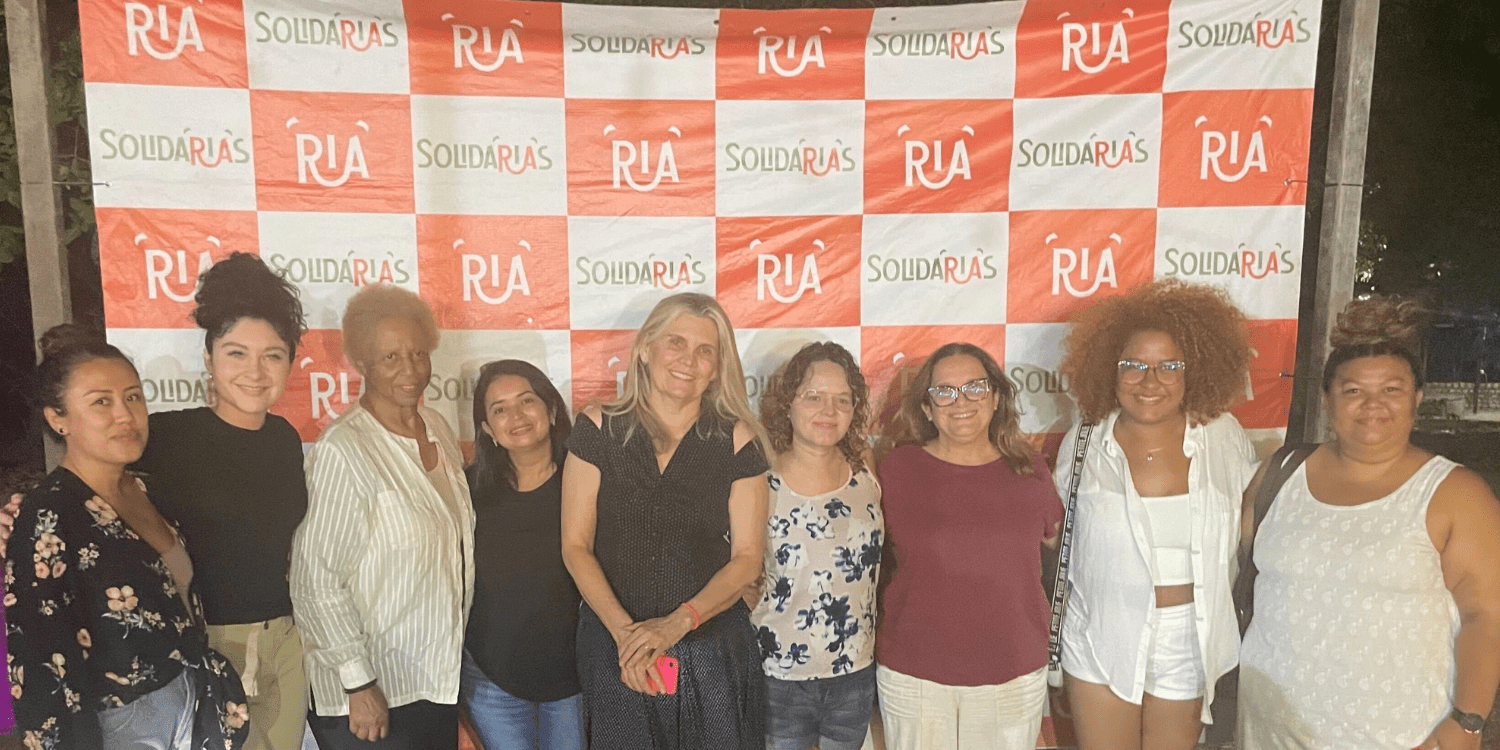
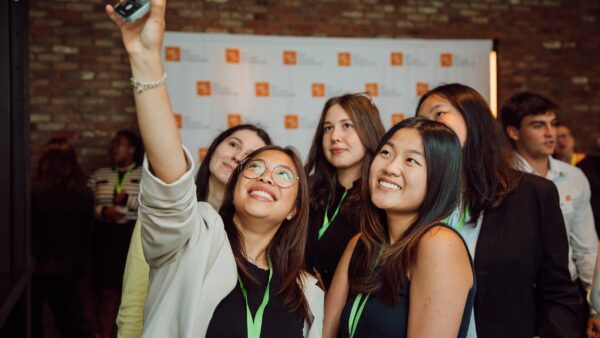
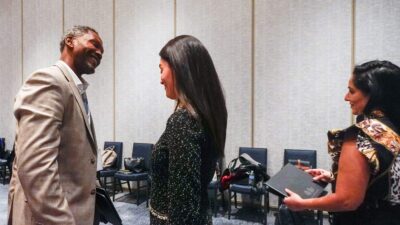
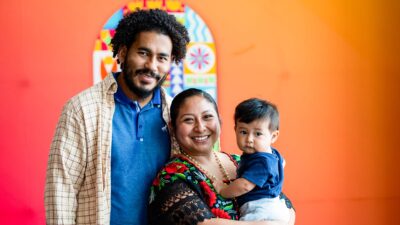
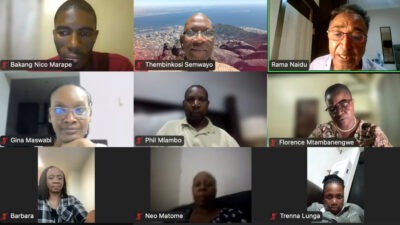
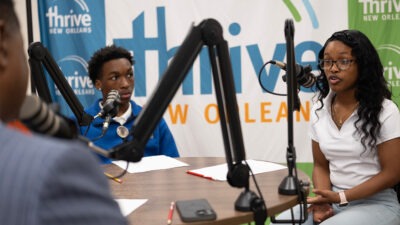
Comments